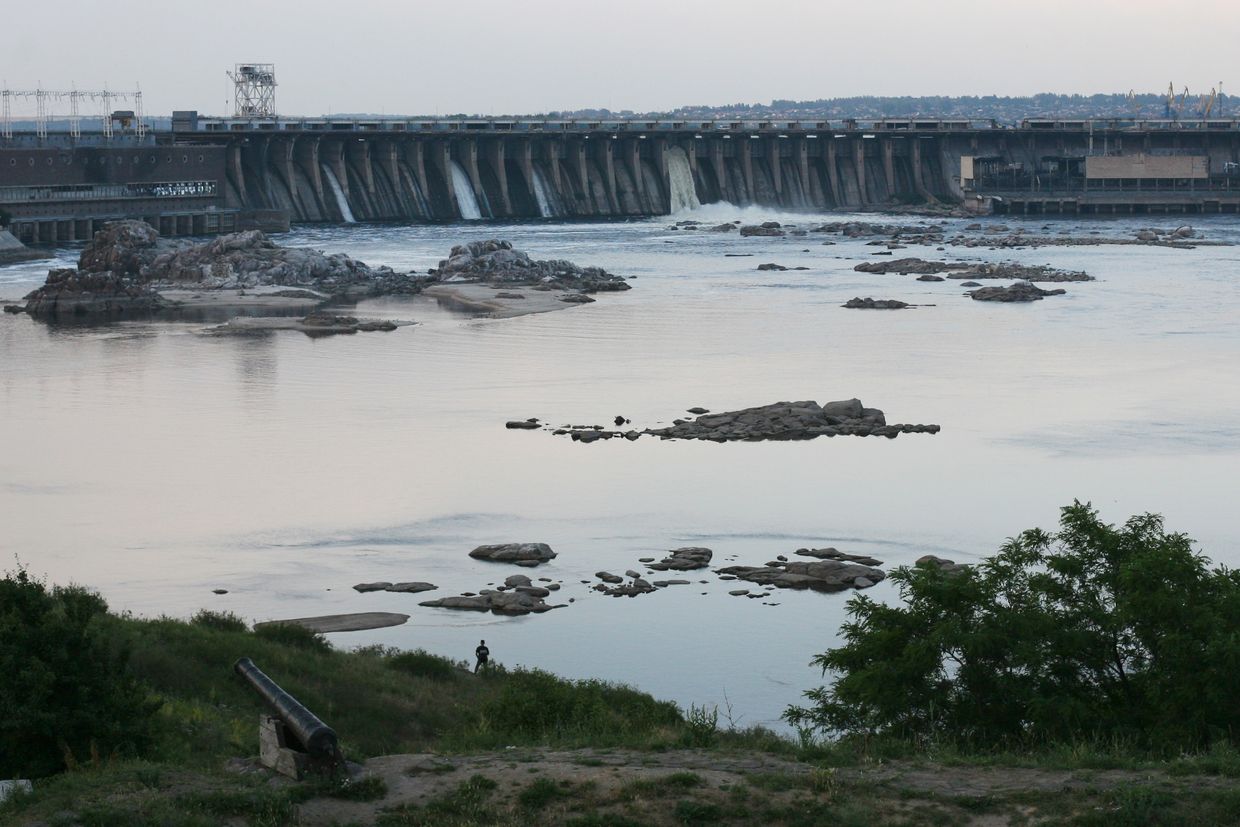Restoring the Dnipro Hydroelectric Station in Zaporizhzhia, Ukraine's largest hydroelectric power plant, will take at least three years, according to Ihor Syrota, head of the Ukrainian state-owned energy company Ukrhydroenergo.
"For the enemy, the Dnipro Hydroelectric Station is more easily reachable, the front line is 50 kilometers away (from it)," Syrota said in an interview with Forbes Ukraine published on July 16.
"They (Russian forces) are launching various missiles there: S-300, Kh-101, Kh-69. Our air defense cannot always cope with such an influx of missiles," he added.
Russia launched a large-scale drone and missile attack on Ukraine overnight on June 1, targeting the Dnipro Hydroelectric Station, among other facilities. It took a month and a half to clear the rubble after the attack, with work only completed on July 14.
The power plant was also hit with eight Russian missiles on March 22 during one of the biggest attacks on the country's energy infrastructure, which reportedly led to the loss of a third of its capacity.
It will take at least three years to restore the Dnipro Hydroelectric Station to full shape before the Russian attacks. Additional resources are also needed to reduce the plant's vulnerability to new possible strikes, according to Syrota.
Ukrhydroenergo is preparing lawsuits in international and national courts to obtain compensation for losses from Russian attacks on the power plant in Zaporizhzhia, Syrota said.
Russia has attacked all of Ukraine's largest hydroelectric power plants since the beginning of the full-scale invasion. As of mid-July, more than 120 missile strikes were launched against them, Forbes Ukraine reported.
Ukrhydroenergo has lost almost 45% of its electricity generation capacity due to Russian attacks.
Russia has destroyed more than 9 GW of electricity generation since the beginning of the all-out war, while another 18 GW of capacity was produced by facilities that are currently under Russian occupation.














